The Jews in Europe: The Mask of Freemasonry, Part 2
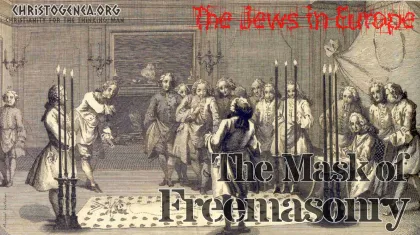
The Jews in Europe: The Mask of Freemasonry, Part 2
Out of all the literature of the ancients, only one book instructs man as to the treachery of the people now known as the Jews, and that book is the Bible, of which both Old and New Testaments are equally relevant parts. To realize this truth, the Bible must be treated as the history book which it is, and studied forwards and backwards and forwards again in conjunction with all of the other ancient documents which we have available. These people now known as Jews can be traced from Genesis chapter 4 through the early periods of Joshua and the Judges and into the kingdom of David and Solomon, and the prophets describe how they infiltrated, eventually subverted, and caused the downfall of that kingdom. The first humanist revolt was in the days of Jeroboam I, and by the time of Jeremiah and Ezekiel Jerusalem was nearly completely subverted, much like all of the western nations of today. But at that time the progenitors of the modern Jews were known as Canaanites, Shelahites and Hittites and others.
Rebuilding the Kingdom during the rather egalitarian Hellenistic period Judaea was infiltrated and subverted once again. Then by the time of the birth of Christ the Edomites, who were also Canaanites, took over the nation in a Bolshevik Revolution of their own, which culminated in the reign of Herod the Edomite. Christianity was born in the face of that revolution, and it is the only world religion which explicitly and specifically identifies its agitators as the devils which they are. Later in the first century, the Edomites attempted to carry their revolution throughout the entire empire, and continued it for over 60 years. It did not end in 70 AD, but rather in 136 AD after the Kitos War and the Bar Kokhba Rebellion had also failed. In this respect, Flavius Josephus, with all of his otherwise honorable intentions, was one of their shiksas. He wrote his work Wars of the Judaeans in Aramaic at the start of the first Judaean revolt, addressing it to some of the so-called “lost tribes” which he could still identify, the “northern barbarians” such as the Alans and the Parthians, hoping that he could encourage them to join the cause against Rome. But the Jews failed, and when Christianity prevailed in Europe in spite of three centuries of Jewish and Roman persecution, the Jews were crushed. By the sixth century they were ostracized from all of European society for the first and only time in history. So the Jews made war on Europe, enlisting the arabs, turks and mongols, until working from within they could finally subvert it once again. However the Jews, being the post-Christian left-over infiltrators of ancient Judaea, thereby maintained the identity as the people of the Bible which they had pilfered back in the second and first centuries BC. In truth, they are for the most part Edomites, and not Judaeans at all (Revelation 2:9, 3:9).

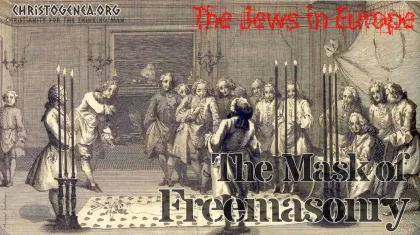
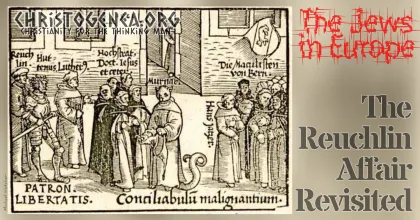
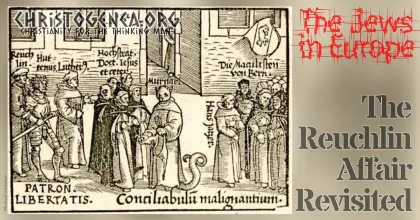
 A Critical Review of Let’s Examine the Evidence, by Bertrand Comparet
A Critical Review of Let’s Examine the Evidence, by Bertrand Comparet
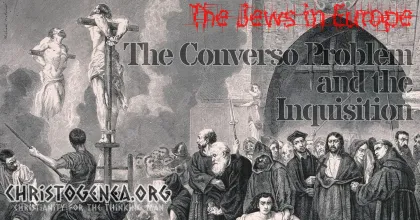
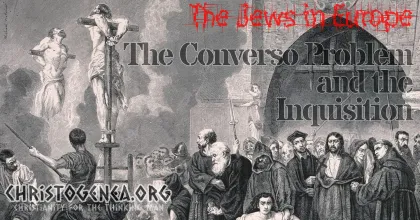

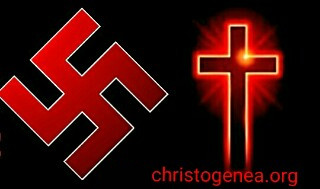
 This program is going to be titled The Kingdom of Heaven, or the Elections of Men? We are going to begin by presenting a short sermon by Bertrand Comparet, and making some remarks in reference to it. But then we shall discuss the currently ongoing election season in the United States, and how Christians should look at both it and at the possibilities. We shall have brother Ryan and, perhaps a little later, some of our other friends and brethren with us for that discussion.
This program is going to be titled The Kingdom of Heaven, or the Elections of Men? We are going to begin by presenting a short sermon by Bertrand Comparet, and making some remarks in reference to it. But then we shall discuss the currently ongoing election season in the United States, and how Christians should look at both it and at the possibilities. We shall have brother Ryan and, perhaps a little later, some of our other friends and brethren with us for that discussion.
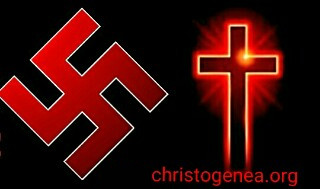




 Please click here for our mailing list sign-up page.
Please click here for our mailing list sign-up page.







